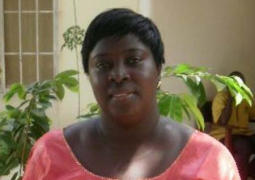The Nova Scotia Gambia Association (NSGA) and the Canadian International Development Agency (CIDA) in partnership with the Ministries of Basic and Secondary Education, Health and Social Welfare, will be hosting a four-week intensive summer school for the Peer Health Educators (PHEs) and teacher coordinators for schools in the country.
The 2011 summer school will bring together about 260 peer health educators and 88 teacher coordinators, from 25 July through 19 August 2011.
According to a press release issued by the NSGA, the participants will be drawn from the North Bank,
This year’s summer school, which is the third of its kind organised by the NSGA, will be held on two campuses - Bansang Senior Secondary in CRR and
During the four weeks of intensive learning, students will be taught by professional Gambian teachers, four Canadian tutors, and NSGA trainers. The study topics will be Reproductive Health, Gender, STIs, HIV/AIDS, Mathematics, English Language and Communication Skills and Strategies.
These areas will better the life skills of the peer health educators as well as improve their abilities in making better choices, informed decisions and self assertiveness, which eventually will contribute in making them better citizens ready for national development.
“The Country Director, Mr Nyakassi Jarju, wishes to appeal to the parents of the selected children to release them on time for the summer school, and allow them to complete the summer school as there are lots of benefits for the children,” the press release states. “He wishes to appeal to the teachers to collaborate with their Canadian counterparts in making this year’s summer school more beneficial to the learners.”
Lamin Fatty, Communications Officer of the NSGA, for his part, said he would like to assure the public that the NSGA is poised to improve the lives of young people in the country through its vibrant peer health education model for in-school and out-of -school youths.
“The summer school will create a platform for young people to freely interact and promote a sense of cultural diversity among students,” he said. “It will help them in making informed choices and decisions on issues affecting their lives as young people. It will also prepare them to become responsible people in their societies and in so doing they will contribute positively towards the nation-building processes.”
Mr Fatty solicits the continued support of the media fraternity, “as the media plays a crucial role in the development process, to get to the summer school to see what takes place and inform the public”.
Read Other Articles In Article (Archive)
Sillaba's sister charged, remanded
Aug 12, 2010, 12:08 PM
Lamin Saibo Sanneh is new BAC chairperson
Apr 30, 2013, 10:22 AM


